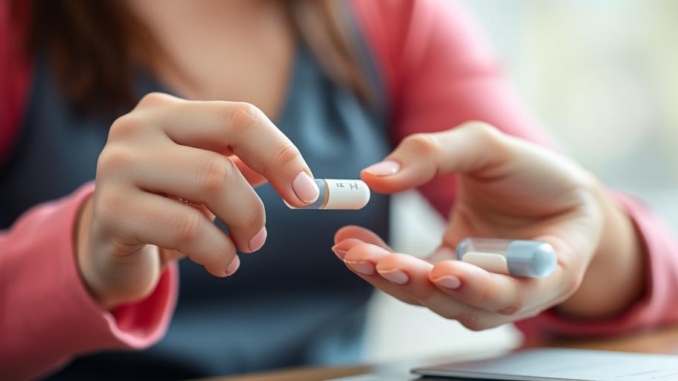
Summary
Nearly 40% of individuals diagnosed with type 2 diabetes stop their secondary medication within the first year. This article explores the reasons behind this trend, focusing on cost, side effects, and the challenges of managing multiple medications. It also highlights the latest advancements in diabetes management, offering hope for more sustainable and patient-centered approaches.
Gain peace of mind with TrueNASs 24/7 support from healthcare data storage specialists.
** Main Story**
Diabetes Meds: A Hard Pill to Swallow
The rising prevalence of type 2 diabetes poses a significant global health challenge. While effective medications exist, adherence to these treatments remains a persistent problem. Studies reveal a concerning trend: nearly 40% of individuals diagnosed with type 2 diabetes discontinue their secondary medication within the first year. This article delves into the complex factors contributing to this phenomenon and explores emerging advancements in diabetes management.
Why Patients Stop Taking Medication
Cost, side effects, and the difficulties of managing complex medication regimens are key factors driving medication discontinuation. For many, the financial burden of multiple medications becomes unsustainable, leading to difficult choices between health and other essential expenses.
Side Effects and Discontinuation
Side effects, often gastrointestinal in nature, frequently discourage patients from continuing their medications. Nausea, vomiting, and diarrhea can significantly impact quality of life, making adherence challenging. The injectable nature of some medications, such as GLP-1 receptor agonists like Ozempic, may also deter some individuals.
The Pill Burden and Complexity
Many patients with type 2 diabetes also manage other health conditions, requiring them to take numerous medications with varying schedules. This “pill burden” can be overwhelming, increasing the risk of missed doses and ultimately, discontinuation. Additionally, a perceived lack of efficacy can discourage patients, leading them to question the value of continuing treatment.
New Advances in Diabetes Management
Despite these challenges, exciting advancements in diabetes management offer renewed hope. Researchers are developing innovative technological solutions, such as artificial pancreas systems. These systems combine continuous glucose monitoring with automated insulin delivery, mimicking the function of a healthy pancreas. This technology promises to simplify diabetes management and improve blood sugar control.
Pharmacological Advancements
Pharmacological research continues to yield promising results. Scientists explore new drug classes targeting specific metabolic pathways, aiming to develop more effective and tolerable treatments. Inhaled insulin offers a non-invasive alternative to injections, while smart insulin pens track doses and transmit data to smartphone apps, empowering patients to manage their treatment.
Lifestyle Interventions
Beyond medications and technology, lifestyle interventions play a crucial role. Programs like GEM (Glucose Everyday Matters) emphasize informed food choices and well-timed exercise to prevent blood sugar spikes. This approach empowers individuals to take control of their health through manageable lifestyle changes.
Improving Patient Adherence
Ultimately, successful diabetes management hinges on patient adherence. Healthcare providers must prioritize shared decision-making, actively involving patients in treatment planning and addressing their concerns. Open communication, patient education, and personalized approaches are essential to building trust and empowering patients to adhere to their treatment plans.


Be the first to comment